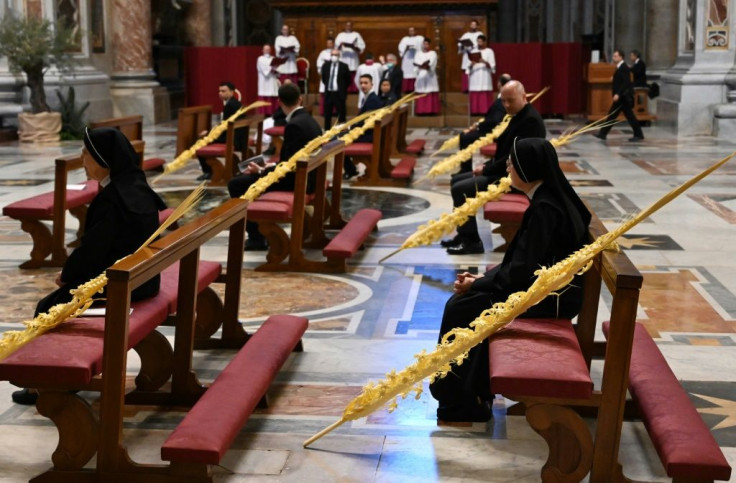Lockdown Tamps Down Easter, Passover Celebrations

Churches will be empty this Easter and Passover festivities will also take place behind closed doors owing to the COVID-19 lockdown.
Christians will be obliged to turn to services broadcast on television or over social media this year owing to the coronavirus and Jews will mark the Passover holiday in their own homes rather than as communities.
The major Jewish holiday starts Wednesday evening and runs to April 16 but families are being strictly urged to mark the festival at home for their own protection against COVID-19.
"Passover in confinement means Passover in security," says France's Grand Rabbi Haim Korsia, so as "not to contaminate those you love most" while remaining united in faith even at a distance.
Yet awkward questions arise for those who choose to adopt the strictest interpretation of traditions such as, for example, not using electricity or being accompanied by others for a reading.
For those in confinement on their own, do traditional observances allow recourse to modern get-arounds such as video-conference at least for the duration of the Passover Seder, the ritual feast which marks the start of the holiday period?
Fourteen rabbis in Jerusalem have decreed in favour of on-screen participation in order to maintain contact particularly with the sick and the elderly. However, Israel's Chief Rabbinate Council is opposed, arguing it amounts to "profaning" a religious holiday.
In France, home to Europe's largest Jewish community, rabbis of a liberal bent are proposing to offer a 'digital' seder forum where believers can connect and discuss such matters.
Christians celebrating Easter will see the COVID-19 confinement crimp celebrations with Holy Week services generally taking place behind closed doors.
The Vatican will be no exception, where Pope Francis last Sunday celebrated Palm Sunday at a deserted Saint Peter's Basilica.
His audience will likewise be watching on screens rather than physically attending his Urbi et Orbi blessing in Saint Peter's Square, a case of addressing the city and the confined world.
Predominantly Catholic countries would normally see huge gatherings on Sunday (Orthodox Easter falls on April 19) -- but not this year, not even in the Mexican municipality of Iztapalapa, which usually hosts a Passion procession that sees participants lug crosses through the streets.
Television and internet are stepping into the breach, however, to allow believers to participate remotely in one of Christianity's most important festivals.
In mainly Catholic Spain the Archbishopric of Seville hopes its mass broadcast will draw an audience in the hundreds of thousands, while Catholic broadcasters in France will transmit mass from the pilgrimage site of Lourdes in the country's southwest.
In Lebanon, Maronite and Catholic masses will be broadcast live with just a priest present while the Latin Patriarchate of Jerusalem is urging believers to pray at home and gather virtually over social media.
Elsewhere, South Africa's Anglican Church has issued guidelines including earmarking a place in the home for prayer and to continue the local tradition of eating pickled fish on Good Friday.
But the virus has forced one South African Easter traditions off the menu -- the evangelical Zion Christian Church has had to forego its annual pilgrimage to Limpopo province, southern Africa's largest Christian gathering.
Orthodox Christians concentrated largely in Russia, Ethiopia, Greece, Serbia and Ukraine, follow the Julian, rather than the Gregorian calendar, hence their Easter falls on April 19. But the extra week will make little difference when it comes to COVID-19 confinement.
"The celebration of the resurrection is a celebration of victory over death. We shall certainly celebrate Easter even if it won't be possible to go to church," said Metropolitan Ilarion, a senior Russian Orthodox Church cleric.
The powerful Russian Orthodox Church initially said that regional authorities had no right to close churches but Patriarch Kirill in late March called on the faithful to pray at home amid the pandemic.
In the hope that COVID-19 may have abated by then, Greek, Syrian and Lebanese authorities are hoping to bring the faithful back into church on May 27 in time to see in Ascension Day.
© Copyright AFP {{Year}}. All rights reserved.





















